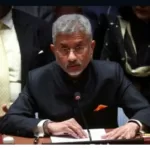Israel has recently intensified its military operations in the northern part of Gaza, cautioning residents that remaining there may lead to their identification as sympathizers with terrorist organizations. Prime Minister Benjamin Netanyahu convened a cabinet meeting to discuss a potential ground invasion of the Gaza Strip, a move that has raised concerns among relatives of hostages held in Gaza and governments with citizens among those hostages. Israel’s military reported that it is holding 212 people captive, with a focus on destroying Hamas as a critical objective.
Airstrikes in southern Gaza, including Khan Younis and Rafah, have continued. Israel’s military spokesperson, R Adm Daniel Hagari, stated that they would escalate attacks in the north of Gaza to minimize risks to their forces in subsequent stages of the conflict. Gazans received mobile phone audio messages and leaflets warning them that their presence in the north could result in their identification as accomplices to a terrorist organization.
As of Saturday, Gaza’s health ministry reported over 4,385 Palestinians killed, including hundreds of children, with more than a million people displaced out of 2.3 million. Israel has also been preparing for the next phase of the conflict, including a potential ground invasion aimed at annihilating Hamas. The situation has escalated violence in the West Bank, where Palestinians have faced clashes with Israeli forces, resulting in at least 84 Palestinian deaths.
The international community, including the US, has become increasingly involved in the region. The US has decided to send more air defense systems and troops to the Middle East in response to attacks on its forces and warnings from militants regarding their involvement in supporting Israel. The conflict continues to be a matter of great concern and raises significant humanitarian issues.







